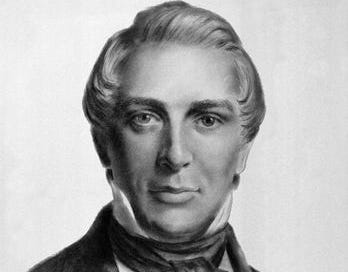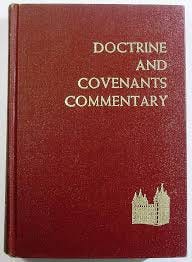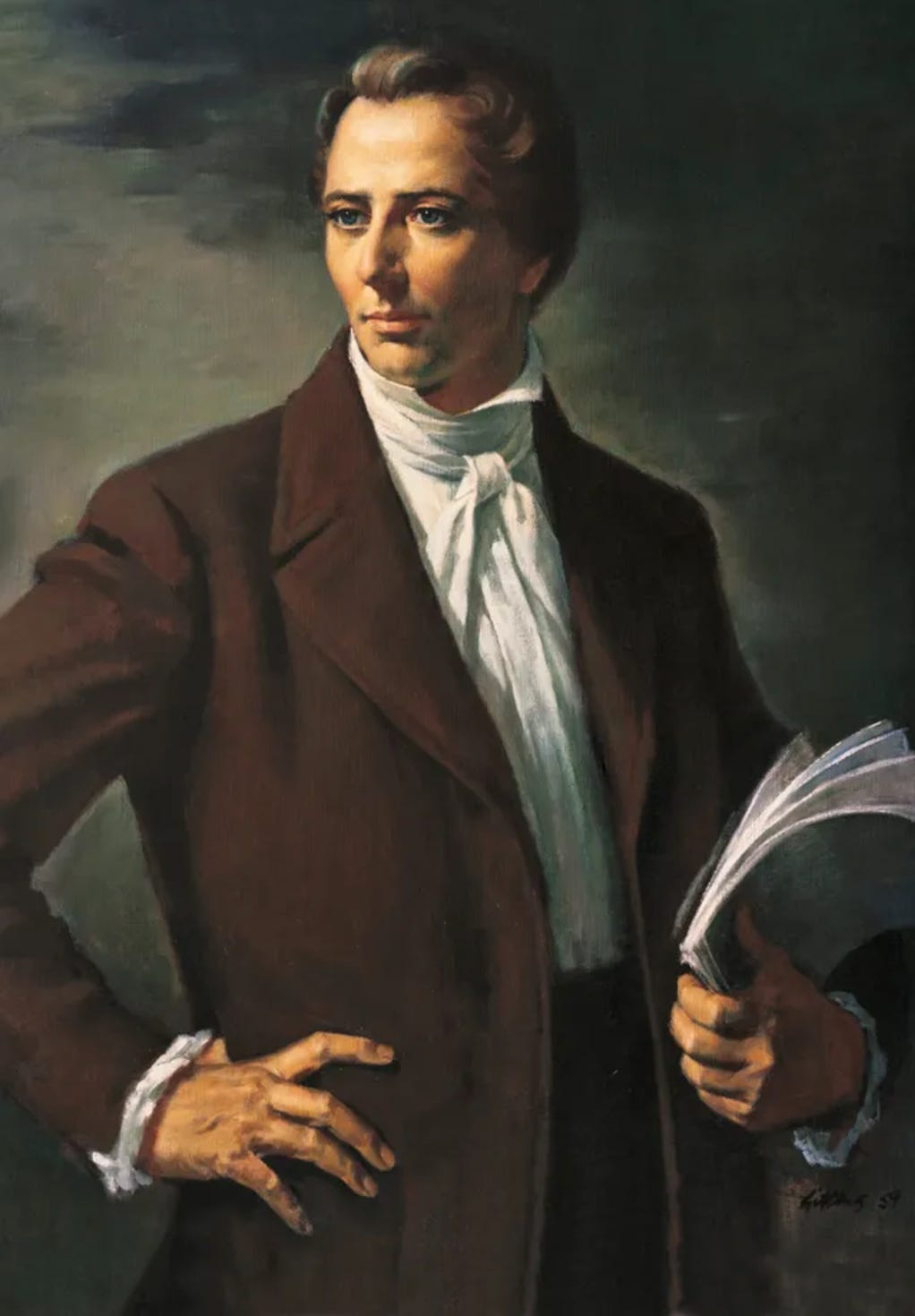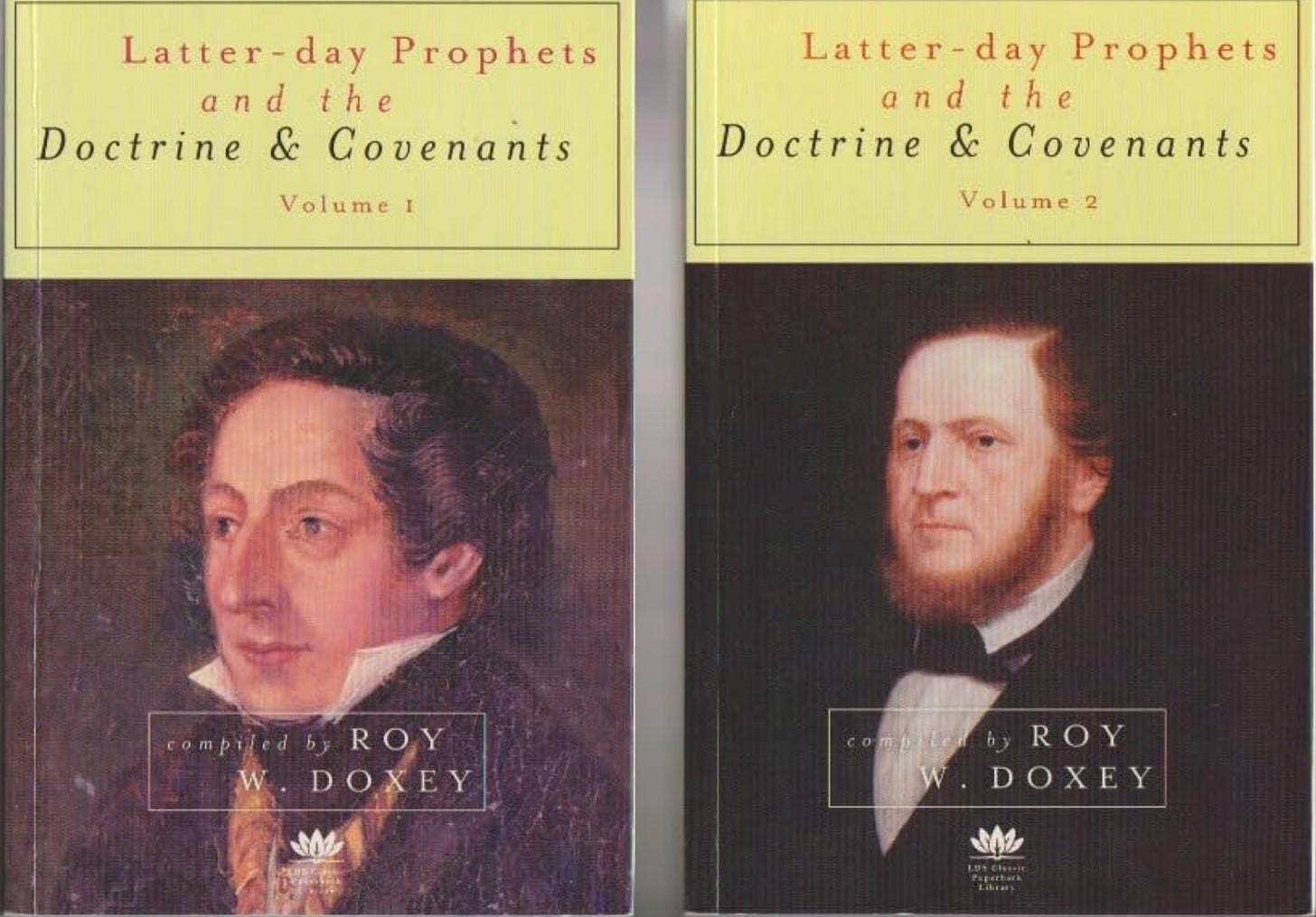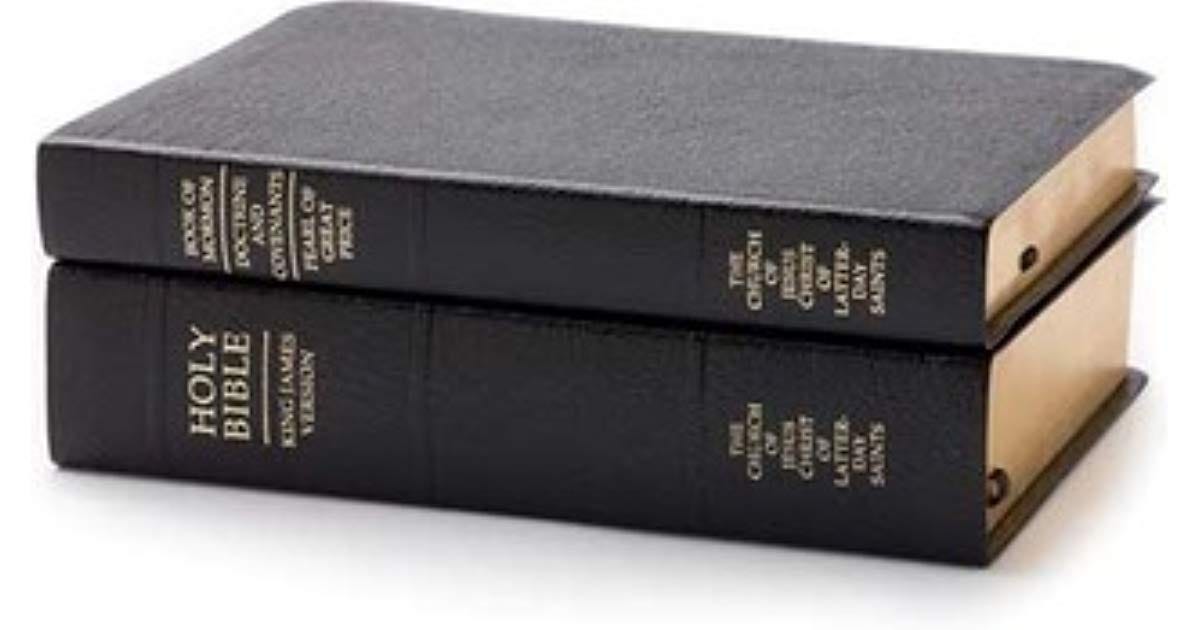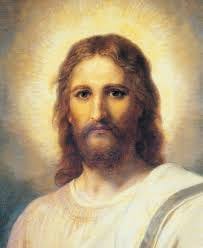That Bespeaketh the Power of God
Historical Background and Reflections on Doctrine and Covenants Section 60
What is the historical background for Doctrine and Covenants Section 60?
In his book The Revelations of the Prophet Joseph Smith, Lyndon W. Cook sheds light on this topic:
Date. 8 August 1831.
Place. Jackson County, Missouri.
Historical Note. Following the dedication of Jackson County, Missouri, as the site of the New Jerusalem, a conference appointed for the Ohio missionaries was convened on 4 August 1831. Thereupon the missionaries prepared for their return to Ohio. Before their departure, the Prophet inquired of the Lord about the return trip and received section 60.
The revelation instructed the elders to make or purchase a “craft” and return to Ohio by way of the Missouri River as far as St. Louis. At S. Louis and Cincinnati, Joseph Smith, Sidney Rigdon, and Oliver Cowdery were to “lift up their voice,” while the remainder of the elders were to leave the water route at St. Louis and travel eastward in pairs, preaching along the way.
Elders who had not yet arrived in Jackson County were to hold a conference upon their arrival and then return home.
On 9 August 1831 Joseph Smith and ten others (Oliver Cowdery, Sidney Rigdon, Samual H. Smith, Reynolds Cahoon, Sidney Gilbert, William W. Phelps, Ezra Booth, Frederick G. Williams, Peter Whitmer, Jr., and Joseph Coe) left Independence in canoes obtained for their conveyance down the Missouri River.
Publication Note. Section 60 was first published as chapter 61 in the Book of Commandments in 1833. (pp. 95-96)
In his chapter “Ezra Booth and Isaac Morley” in Revelations in Context, Matthew McBride also summarizes the historical background for D&C 60:
The Return to Ohio
Though a few of the missionaries had been chosen to remain in Missouri, the August 1 revelation commanded the rest of the missionaries to return to their homes, indicating that “the time has not yet come for many years for them to receive their inheritance in this land.”15
Another revelation, now Doctrine and Covenants 60, instructed the returning missionaries to travel on the Missouri River east to St. Louis.16 There Joseph and Sidney Rigdon would travel speedily to Cincinnati, Ohio, to preach, while the others were to travel “two by two & preach the word not in haste among the congregations of the wicked.”17 (p. 133)
In their commentary, Smith and Sjodahl introduce and summarize D&C 60 as follows:
Some of the Elders who had come to Independence, but were not to remain, were anxious to learn the will of the Lord concerning them, especially with regard to their return journey. In reply to their prayers this Revelation was given, in which the Lord (1) warns them against yielding to fear of man (1-4); (2) gives instructions regarding the journey; (3) regarding expenses (10-11); (4) regarding other elders who intended to come to Zion (12-16); and (5) promises further revelations (17). (p. 358)
This is Bruce R. McConkie’s section heading for the same section:
Revelation given through Joseph Smith the Prophet, in Independence, Jackson County, Missouri, August 8, 1831. On this occasion the elders who had traveled to Jackson County and participated in the dedication of the land and the temple site desired to know what they were to do.
The Prophet Joseph Smith, Jr. himself succinctly introduced this revelation:
On the 8th, as there had been some inquiry among the Elders what they were to do, I received the following. [Section 60, follows.] (HC 1:201, August 1831, Jackson County, Missouri.) (Roy W. Doxey, Latter-day Prophets and the Doctrine & Covenants, Volume 1, p. 475)
The LDS Come Follow Me manual introduction to this section is also helpful and encouraging:
In early August 1831, Joseph Smith and other elders of the Church were preparing to return to Kirtland after a short visit to the “land of Zion” (Doctrine and Covenants 59:3). The Lord had wanted them to preach the gospel during their trip (see Doctrine and Covenants 52:10), and some of them did so diligently. But others were hesitant. “They hide the talent which I have given unto them,” the Lord said, “because of the fear of man” (Doctrine and Covenants 60:2). Many of us know how these elders felt. Even though we love the gospel, fear and doubt might keep us from sharing it. But the Lord is merciful. He “knoweth the weakness of man and how to succor [us]” (Doctrine and Covenants 62:1). Scattered throughout these revelations to early missionaries are reassurances that can help us overcome our fears and shortcomings: “I am able to make you holy.” “All flesh is in mine hand.” “I am with the faithful always.” And “He that is faithful and endureth shall overcome the world.” (Doctrine and Covenants 60:7; 61:6; 62:9; 63:47.)
With this historical background in mind, let’s examine and appreciate this section a piece at a time:
Behold, thus saith the Lord unto the elders of his church, who are to return speedily to the land from whence they came: Behold, it pleaseth me, that you have come up hither;
But with some I am not well pleased, for they will not open their mouths, but they hide the talent which I have given unto them, because of the fear of man. Wo unto such, for mine anger is kindled against them.
And it shall come to pass, if they are not more faithful unto me, it shall be taken away, even that which they have.
For I, the Lord, rule in the heavens above, and among the armies of the earth; and in the day when I shall make up my jewels, all men shall know what it is that bespeaketh the power of God. (D&C 60:1-4)
The Lord was pleased with the faith of his Elders who had come to Missouri, but he rebuked some of them for their fear of men and lack of faith. Alluding to His parable of the talents, the Lord rebuked the Elders who hid the talent which He had given unto them. In a previous post I listed and commented on several of the Lord’s parables regarding His kingdom, but to better understand the Lord’s rebuke in D&C 60, it is worth reviewing the parable of the talents:
For the kingdom of heaven is as a man travelling into a far country, who called his own servants, and delivered unto them his goods.
And unto one he gave five talents, to another two, and to another one; to every man according to his several ability; and straightway took his journey.
Then he that had received the five talents went and traded with the same, and made them other five talents.
And likewise he that had received two, he also gained other two.
But he that had received one went and digged in the earth, and hid his lord’s money.
After a long time the lord of those servants cometh, and reckoneth with them.
And so he that had received five talents came and brought other five talents, saying, Lord, thou deliveredst unto me five talents: behold, I have gained beside them five talents more.
His lord said unto him, Well done, thou good and faithful servant: thou hast been faithful over a few things, I will make thee ruler over many things: enter thou into the joy of thy lord.
He also that had received two talents came and said, Lord, thou deliveredst unto me two talents: behold, I have gained two other talents beside them.
His lord said unto him, Well done, good and faithful servant; thou hast been faithful over a few things, I will make thee ruler over many things: enter thou into the joy of thy lord.
Then he which had received the one talent came and said, Lord, I knew thee that thou art an hard man, reaping where thou hast not sown, and gathering where thou hast not strawed:
And I was afraid, and went and hid thy talent in the earth: lo, there thou hast that is thine.
His lord answered and said unto him, Thou wicked and slothful servant, thou knewest that I reap where I sowed not, and gather where I have not strawed:
Thou oughtest therefore to have put my money to the exchangers, and then at my coming I should have received mine own with usury.
Take therefore the talent from him, and give it unto him which hath ten talents.
For unto every one that hath shall be given, and he shall have abundance: but from him that hath not shall be taken away even that which he hath.
And cast ye the unprofitable servant into outer darkness: there shall be weeping and gnashing of teeth. (Matthew 25:14-30)
These Elders among the early Saints were fortunate that the Lord reckoned with them and rebuked them before His coming so that they could repent and be more faithful. To share their talent meant setting aside the fear of man and opening their mouths to share the glad tidings of the Restored Gospel of Jesus Christ. Their talent was the testimony that they had received of the truth of the Gospel, a talent that must be freely shared with all of God’s children. This is a gift of the Spirit and a talent that I have received, and which I therefore freely share, here in The Torch, and everywhere I can, for as the Apostle Paul put it:
I am not ashamed of the gospel of Christ: for it is the power of God unto salvation to every one that believeth; to the Jew first, and also to the Greek. (Romans 1:16)
These verses at the beginning of section 60 remind us to fear God, not man. Heavenly Father rules in the heavens above, and among the armies of the earth. He has all power.
What is the day when the Lord shall make up His jewels? That day is fast approaching, and when it arrives, all men shall know it. We shall also know “what it is that bespeaketh the power of God.”
Regarding these verses, Smith and Sjodahl observe:
The Fear of Man Displeasing to God
It pleaseth me] The Lord was pleased with the Elders who had come to Independence, and He graciously expressed His approbation. Our Father is generous in praise and slow to rebuke. This time He had occasion to voice His displeasure, but He prefacted it by a gracious word of commendation.
Not well pleased] Some of the Elders, notwithstanding the manifestations they had had of the power and goodness of God, did not speak of these things to their fellowmen, because of their fear of man. This was highly displeasing to the Lord. We should learn from this, that, if we have a testimony of the truth, it is our duty to give that testimony to others, without fear.
It shall be taken away] Those who neglect to testify of the truth revealed to them, will surely lose the testimony they have.
When I shall make up my jewels] This is an expression found in Malachi 3:17. where “jewels” refers to the people of God, and where the meaning seems to be that when God segregates His people from the world, His power, as that of a monarch wearing a crown of jewels, will be made manifest to all men. But the testimony concerning the truth must be given to the world before the coming of that day, in order that, when it comes, its portent may be known to all. (p. 358)
The Lord’s revelation to His Elders continues:
But, verily, I will speak unto you concerning your journey unto the land from whence you came. Let there be a craft made, or bought, as seemeth you good, it mattereth not unto me, and take your journey speedily for the place which is called St. Louis.
And from thence let my servants, Sidney Rigdon, Joseph Smith, Jun., and Oliver Cowdery, take their journey for Cincinnati;
And in this place let them lift up their voice and declare my word with loud voices, without wrath or doubting, lifting up holy hands upon them. For I am able to make you holy, and your sins are forgiven you.
And let the residue take their journey from St. Louis, two by two, and preach the word, not in haste, among the congregations of the wicked, until they return to the churches from whence they came.
And all this for the good of the churches; for this intent have I sent them. (D&C 60:5-9)
The Lord was not so much concerned about the manner of the missionaries’ travel as He was about the good of His churches and that His Gospel message reach as many of His children as possible along the way, even in major cities (and major Lamanite cities) such as St. Louis and Cincinnati. The Lord’s commandment to buy or make a water craft might remind us of the journeys of the Brother of Jared and his people, the journeys of Lehi, Nephi, and their people, and many others. In essence, the Lord commanded His First Presidency, Joseph, Oliver, and Sidney, to travel from St. Louis to Cincinnati, and there to preach His Gospel, in His way.
It is instructive that the Lord revealed not only what His Saints should preach, but how they should preach. The Lord commanded them to declare His word with loud voices, without wrath or doubting. The joyful Gospel of Jesus Christ must be preached in love and faith, the manner matching the message. This reminds me of the Prophet Joseph Smith’s later revelation regarding the joyful message of the Gospel, and how the Gospel must be preached:
Now, what do we hear in the gospel which we have received? A voice of gladness! A voice of mercy from heaven; and a voice of truth out of the earth; glad tidings for the dead; a voice of gladness for the living and the dead; glad tidings of great joy. How beautiful upon the mountains are the feet of those that bring glad tidings of good things, and that say unto Zion: Behold, thy God reigneth! As the dews of Carmel, so shall the knowledge of God descend upon them!
And again, what do we hear? Glad tidings from Cumorah! Moroni, an angel from heaven, declaring the fulfilment of the prophets—the book to be revealed. A voice of the Lord in the wilderness of Fayette, Seneca county, declaring the three witnesses to bear record of the book! The voice of Michael on the banks of the Susquehanna, detecting the devil when he appeared as an angel of light! The voice of Peter, James, and John in the wilderness between Harmony, Susquehanna county, and Colesville, Broome county, on the Susquehanna river, declaring themselves as possessing the keys of the kingdom, and of the dispensation of the fulness of times!
And again, the voice of God in the chamber of old Father Whitmer, in Fayette, Seneca county, and at sundry times, and in divers places through all the travels and tribulations of this Church of Jesus Christ of Latter-day Saints! And the voice of Michael, the archangel; the voice of Gabriel, and of Raphael, and of divers angels, from Michael or Adam down to the present time, all declaring their dispensation, their rights, their keys, their honors, their majesty and glory, and the power of their priesthood; giving line upon line, precept upon precept; here a little, and there a little; giving us consolation by holding forth that which is to come, confirming our hope!
Brethren, shall we not go on in so great a cause? Go forward and not backward. Courage, brethren; and on, on to the victory! Let your hearts rejoice, and be exceedingly glad. Let the earth break forth into singing. Let the dead speak forth anthems of eternal praise to the King Immanuel, who hath ordained, before the world was, that which would enable us to redeem them out of their prison; for the prisoners shall go free.
Let the mountains shout for joy, and all ye valleys cry aloud; and all ye seas and dry lands tell the wonders of your Eternal King! And ye rivers, and brooks, and rills, flow down with gladness. Let the woods and all the trees of the field praise the Lord; and ye solid rocks weep for joy! And let the sun, moon, and the morning stars sing together, and let all the sons of God shout for joy! And let the eternal creations declare his name forever and ever! And again I say, how glorious is the voice we hear from heaven, proclaiming in our ears, glory, and salvation, and honor, and immortality, and eternal life; kingdoms, principalities, and powers!
Behold, the great day of the Lord is at hand; and who can abide the day of his coming, and who can stand when he appeareth? For he is like a refiner’s fire, and like fuller’s soap; and he shall sit as a refiner and purifier of silver, and he shall purify the sons of Levi, and purge them as gold and silver, that they may offer unto the Lord an offering in righteousness. Let us, therefore, as a church and a people, and as Latter-day Saints, offer unto the Lord an offering in righteousness; and let us present in his holy temple, when it is finished, a book containing the records of our dead, which shall be worthy of all acceptation. (D&C 128:19-24)
The Lord also commanded them to lift up holy hands upon the people. What on earth does this mean? One meaning is found in the following sentence, namely, that the Lord made His Saints holy, and forgave their sins. The Lord commanded the rest of His missionaries to travel two by two from St. Louis, patiently preaching His word along the way, among the congregations of the wicked, until they returned to their former congregations.
Smith and Sjodahl note:
5-9. These paragraphs contain detailed directions for the return journey to Kirtland, Ohio. The Elders are instructed to preach the gospel by the way, and especially in the City of Cincinnati. Oliver Cowdery and companions, when on their mission to the Lamanites, preached the gospel in that city without great success, but they were not to pass by the place on that account. (p. 359)
And let my servant Edward Partridge impart of the money which I have given him, a portion unto mine elders who are commanded to return;
And he that is able, let him return it by the way of the agent; and he that is not, of him it is not required. (D&C 60:10-11)
Smith and Sjodahl explain:
Regarding Expenses.
10-11. The expenses of the journey might be borne by the common funds, but those who were able to refund the money, were expected to do so. (p. 359)
This commandment demonstrates that the first priority and mission of the Church is to preach the Gospel of Jesus Christ.
And now I speak of the residue who are to come unto this land.
Behold, they have been sent to preach my gospel among the congregations of the wicked; wherefore, I give unto them a commandment, thus: Thou shalt not idle away thy time, neither shalt thou bury thy talent that it may not be known.
And after thou hast come up unto the land of Zion, and hast proclaimed my word, thou shalt speedily return, proclaiming my word among the congregations of the wicked, not in haste, neither in wrath nor with strife.
And shake off the dust of thy feet against those who receive thee not, not in their presence, lest thou provoke them, but in secret; and wash thy feet, as a testimony against them in the day of judgment.
Behold, this is sufficient for you, and the will of him who hath sent you. (D&C 60:12-16)
What are the congregations of the wicked?
As I read it, the congregations of the wicked included all those people to whom the missionaries were sent, in this case in Jackson County, Missouri. It sounds like a harsh term for the American citizens in those cities, but that’s the appellation that the Lord gave them. They were wicked, just as many modern American citizens in many modern cities are also wicked. This is the definition of “wicked” in Webster’s 1828 dictionary:
WICKED, adjective [The primary sense is to wind and turn, or to depart, to fall away.]
1. Evil in principle or practice; deviating from the divine law; addicted to vice; sinful; immoral. This is a word of comprehensive signification, extending to every thing that is contrary to the moral law, and both to persons and actions. We say, a wicked man, a wicked deed, wicked ways, wicked lives, a wicked heart, wicked designs, wicked works.
No man was ever wicked without secret discontent.
2. A word of slight blame; as the wicked urchin.
3. Cursed; baneful; pernicious; as wicked words, words pernicious in their efforts.
[This last signification may throw some light on the word witch.]
The wicked in Scripture, persons who live in sin; transgressors of the divine law; all who are unreconciled to God, unsanctified or impenitent.
The last definition seems the most appropriate to describe the people to whom the Lord sent His missionaries to preach His Gospel. The people were wicked, but the Lord loved them enough to send His missionaries to them to call them to repentance. Heavenly Father mercifully sends His messengers to rescue the unreconciled, unsanctified, and impenitent from their evil ways. He would not do this if they were not worth saving or if there was no hope for them. The preaching of the word of God has the power to transform the wicked into the righteous.
The Lord commanded His missionaries not to be lazy or bashful, but to faithfully proclaim His word, and then speedily return to Zion. Again, the Lord taught His missionaries how to proclaim His word, in patience patience, love, and faith. The Lord’s missionaries cannot preach His Gospel in wrath or strife. The Lord works only through love and persuasion, but He also provides a testimony against those who reject His servants. The ordinance of shaking off the dust of the feet and washing the feet was to be carried out in secret. This was to protect the missionaries as much as it was to prevent provocation, and to leave a testimony against them in the day of judgment.
Smith and Sjodahl write:
Regarding Other Elders.
12-16. Other elders were to be appointed to go on a mission to Jackson County. They were to preach the gospel to the world diligently, and not idle their time away (v. 13); and when they had reached their destination, they were to return and continue preaching, without being in a hurry and without stirring up strife (v. 14).
Shake off the dust of thy feet] Our Lord instructed His first Apostles to shake the dust off their feet, when they departed from a house or a city in which their message had been rejected. Paul and Barnabas did so, when they were forced to leave Antioch in Pisidia (Acts 13:50-1). Paul, at Corinth, when the Jews opposed him and blasphemed, shook his raiment and said, “Your blood be upon your own heads; I am clean” (Acts 18:6). The significance of this solemn act is made clear in Nehemiah 5:13. This prophet, after having taken a promise of the priests, shook his lap and said, “God shake out every man from his house, and from his labor, that performeth not this promise, even thus be he shaken out and empty.” To shake the dust of the feet signified the same thing. The Elders of the Church were to perform this act in secret, as a testimony against scoffers and persecutors on the day of judgment, and only when prompted by the Spirit, lest they should make a serious mistake. (p. 360)
And by the mouth of my servant Joseph Smith, Jun., it shall be made known concerning Sidney Rigdon and Oliver Cowdery. The residue hereafter. Even so. Amen. (D&C 60:17)
Joseph Smith was the Lord’s mouthpiece. In these early days of the Restoration, the Lord’s revelations flowed through him with remarkable power and acceleration.
Smith and Sjodahl note:
Further Revelations are promised, when needed. (p. 360)


